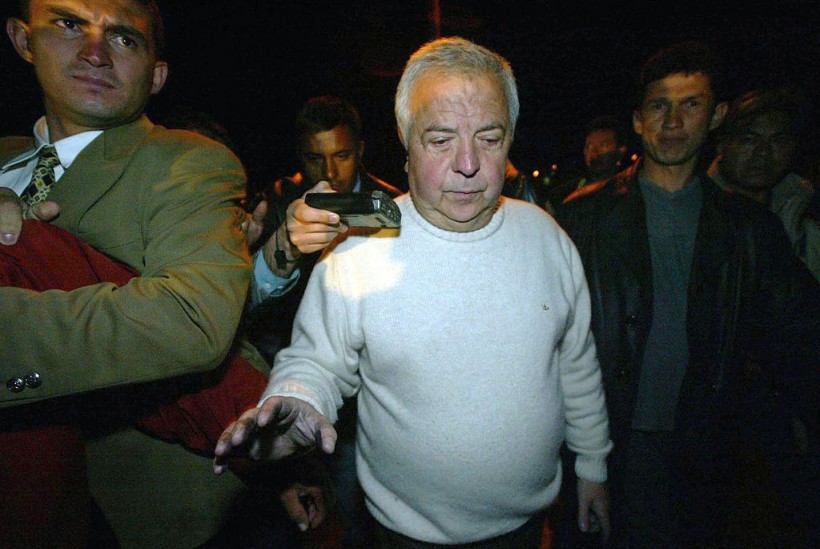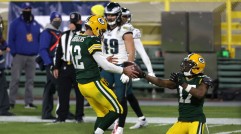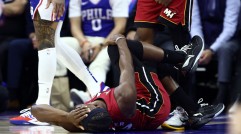Colombia's Cali Cartel Leader Gilberto Rodríguez Orejuela Dies in U.S. Prison

Gilberto Rodriguez Orejuela, a leader of now-defunct Colombia's Cali cartel, has died in a U.S. prison, according to his lawyer.
According to Associated Press, the Cali cartel was known to have smuggled massive amounts of cocaine from Colombia to the U.S. in the 1980s and 1990s.
Rodriguez Orejuela's lawyer David O. Markus earlier said that the former drug kingpin was suffering from various health problems.
In 2020, a judge denied the Cali cartel leader, who was in his 80s, early release on compassionate grounds from a prison in Butner, North Carolina.
Markus said on Wednesday that they were "very sad to learn" about Rodriguez Orejuela's passing "last night," and has offered thoughts and prayers for the elderly cartel leader's family.
Markus noted that "God has a new chess partner," referring to the drug cartel leader's nickname "the chess player," which he earned for outsmarting his enemies and rivals.
Rodriguez Orejuela and his brother Miguel were captured in 1995 and imprisoned in Colombia. At the time, Colombian law prohibited the extradition of its nationals. However, Colombia lifted the ban in 1997 after mounting pressure from the U.S.
The two, who were found to have been continuing to traffic from prison, were criminally charged in Miami and New York. Gilberto Rodriguez Orejuela was extradited in 2004, while Miguel was extradited the following year.
READ NEXT: Colombia Seizes 10 Tons of Cocaine Worth Over $300 Million, the Largest Drug Bust This Year
The Capture of Cali Cartel Leader Gilberto Rodriguez Orejuela
The Cali cartel leader and four bodyguards were captured in a raid on a luxurious house in the southern city of Cali. According to New York Times, the drug kingpin was flown directly to Colombia's capital, Bogota, at the time.
A helicopter had transferred them to national police headquarters. Colombia's president at the time, Ernesto Samper, announced the arrest on Colombian national radio television and proclaimed that it marked the "beginning of the end for the Cali cartel."
The Drug Enforcement Agency noted that the Cali cartel provided 80 percent of the world's cocaine and increasing amounts of heroin. Lee P. Brown, director of the Office of National Drug Control Policy at the time, lauded the Colombian government and people for the effort.
U.S. officials were reportedly shaken by tape recordings in which the leaders of the Cali cartel were heard talking about the contributions of millions of dollars to Samper's presidential campaign.
U.S. senators then sought to cut off U.S. economic aid to Colombia unless more was done to subdue the drug trafficking. Thus, Colombian authorities have begun seriously trying to catch the Cali leaders.
Colombia's police then announced rewards of $1.25 million for help in capturing Gilberto Rodriguez Orejuela and his brother, Miguel.
Cali Cartel in Colombia
The Cali cartel had been operating since the 1970s. However, their organization did not reach its peak until after Pablo Escobar's death. Business Insider reported that the Cali cartel leadership seemed to have learned from Escobar's missteps.
Javier Peña, a former U.S. Drug Enforcement Administration (DEA) agent, said they noticed that the Cali cartel learned from the Medellin cartel not to make the same type of mistakes.
Peña described the Cali cartel as more business-like, while the Medellin cartel was what he would call "wild, wild west." The former DEA agent said the Cali cartel had more sophisticated accountants.
The Colombian drug cartel has reportedly invested in several companies in Colombia and the U.S. while earning a level of public respect for their behavior.
This article is owned by Latin Post.
Written by: Mary Webber
WATCH: The Rise and Fall of the Cali Cartel : Its Wealth and Power - From Luxury Drop
Subscribe to Latin Post!
Sign up for our free newsletter for the Latest coverage!














